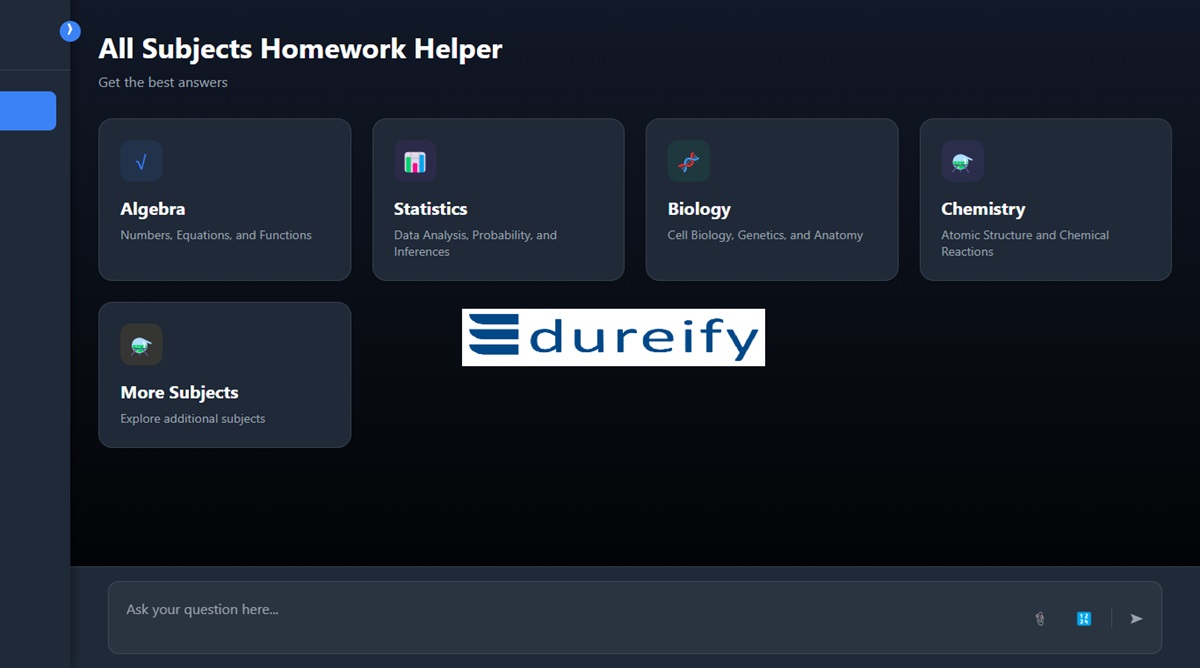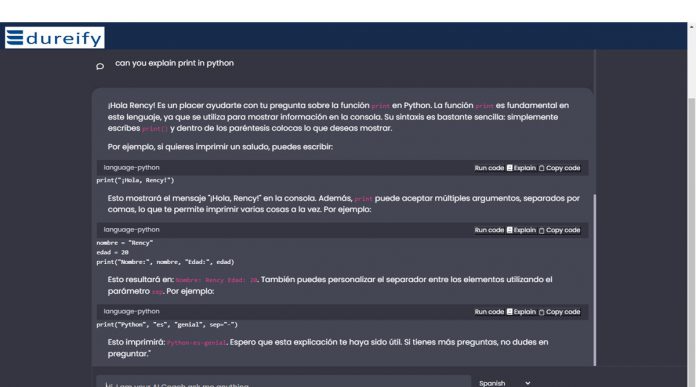Artificial Intelligence (AI) has been transforming industries for years, but one of its most impactful applications is the AI chatbot. From customer support to personal assistants, AI chatbots have become an integral part of our digital lives. Whether you are ordering food, booking a flight, or getting help with a product, chances are you have interacted with one. But what exactly are AI chatbots, and why are they so revolutionary? Let’s explore further.
What is an AI Chatbot?
An AI chatbot is a software application designed to simulate human conversation. Unlike traditional bots that follow pre-set rules, AI-powered chatbots use Natural Language Processing (NLP) and Machine Learning (ML) to understand and respond to queries in real time. This means they can comprehend context, learn from interactions, and improve over time.
For instance, when you chat with Siri, Alexa, Edureify AI Mentor, or Google Assistant, you are engaging with a sophisticated AI chatbot. These bots do not just answer questions,they create personalized experiences
Key NLP Techniques Used in AI Chatbot
- Named Entity Recognition (NER): Identifies proper nouns, dates, locations, and other key entities in text.
- Sentiment Analysis: Determines the tone of the message (e.g., positive, negative, neutral, and other factors).
- Syntax Parsing: Analyzes sentence structure to understand grammar and relationships between words or syllables.
- Dialog Management: Ensures logical conversation flow, often supported by state machines or reinforcement learning.
At the forefront of AI-driven education, BootSelf is bridging the gap between current capabilities and the AGI-driven future, offering cutting-edge tools for personalized, scalable learning.
Why is AI Chatbot Important?
AI chatbots are more than just a fancy tool; bots are reshaping how businesses and individuals communicate. Here is why they matter:
- 24/7 Availability: Unlike human agents, chatbots never sleep. They’re available round the clock, ensuring users get help whenever they need it.
- Cost Efficiency: Hiring and training staff is expensive. Chatbots reduce overhead costs while handling repetitive tasks efficiently.
- Improved User Experience: Chatbots elevate customer satisfaction by providing instant responses and tailored suggestions.
Scalability: Businesses can handle thousands of queries simultaneously, something impossible for human teams
How Does AI Chatbot Work?
AI chatbots rely on a combination of AI algorithms (to make decisions) and data. Here’s a simple breakdown:
- Input Recognition: The chatbot analyzes your query using NLP to understand intent and context.
- Processing: Once the intent is identified, the bot retrieves the appropriate response. Advanced bots use ML models to craft unique replies based on past interactions.
- Output Generation: The response is delivered in a conversational tone, making the interaction feel natural.
For example, if you ask a chatbot, “How’s Tesla Stock doing today today?”, it identifies the intent (stock information) and retrieves real-time data from stock exchange APIs.
Types of AI Chatbots
AI chatbots come in various forms, each tailored to specific needs:
- Rule-Based Chatbots: These follow predefined scripts. They’re simple and ideal for basic tasks like answering FAQs.
- AI-Powered Chatbots: Using NLP and ML, they understand the context and learn from interactions. They’re versatile and suitable for complex tasks.
- Voice-Enabled Chatbots: Think of Alexa or Google Assistant. These bots process voice inputs and provide spoken responses.
- Hybrid Chatbots: These combine AI capabilities with human support, ensuring seamless transitions for complicated queries.
Applications of AI Chatbots
AI chatbots are everywhere, and they are revolutionizing industries in countless ways. For example, in customer support, many companies use chatbots to handle support queries. Edureify AI chatbots revolutionizing how people learn. Brands like Amazon and Shopify deploy bots to manage order tracking, refunds, and product inquiries. Moreover, chatbots in e-commerce provide personalized product recommendations, process payments, and manage inventory.

Additionally, in the healthcare sector, chatbots assist patients by scheduling appointments, reminding them about medications, and providing basic medical advice. In the same vein, AI chatbots also serve in education by helping students with lessons, quizzes, and even career counseling.
Furthermore, in recruitment, chatbots streamline the hiring process by screening candidates, scheduling interviews, and answering job-related queries. Thus, AI chatbots are transforming numerous industries by automating tasks and enhancing efficiency.
Challenges AI Chatbot Face
While AI chatbots are powerful, they’re not without challenges:
- Understanding Complex Queries: Not all bots can grasp nuanced questions or emotions, leading to errors.
- Privacy Concerns: Handling sensitive user data raises security and ethical questions.
- Lack of Human Touch: Despite advancements, some users still prefer human interaction for resolving issues.
However, as AI technology advances, these challenges are gradually being addressed.
Future of AI Chatbots
The future of AI chatbots looks incredibly promising. With developments in Generative AI and Deep Learning, bots will become even more human-like. Imagine a world where chatbots can predict your needs before you express them or engage in multi-lingual conversations seamlessly.
Moreover, industries like travel, real estate, and banking are set to benefit significantly from AI chatbot integration.
AI chatbots powered by NLP are revolutionizing the way we communicate. By blending technical sophistication with user-centric design, these bots provide fast, efficient, and personalized interactions. Whether you’re a business owner or a consumer, it’s clear that chatbots are shaping the future of digital engagement.
Master Your Coding Skills with BootSelf AI
If you're looking to enhance your coding abilities and upskill in artificial intelligence, look no further than the BootSelf AI app. This innovative platform provides AI-based coding lessons that are tailored to your individual learning pace.
Available on both iOS and Android, you can download the BootSelf AI app and start mastering coding skills today:






